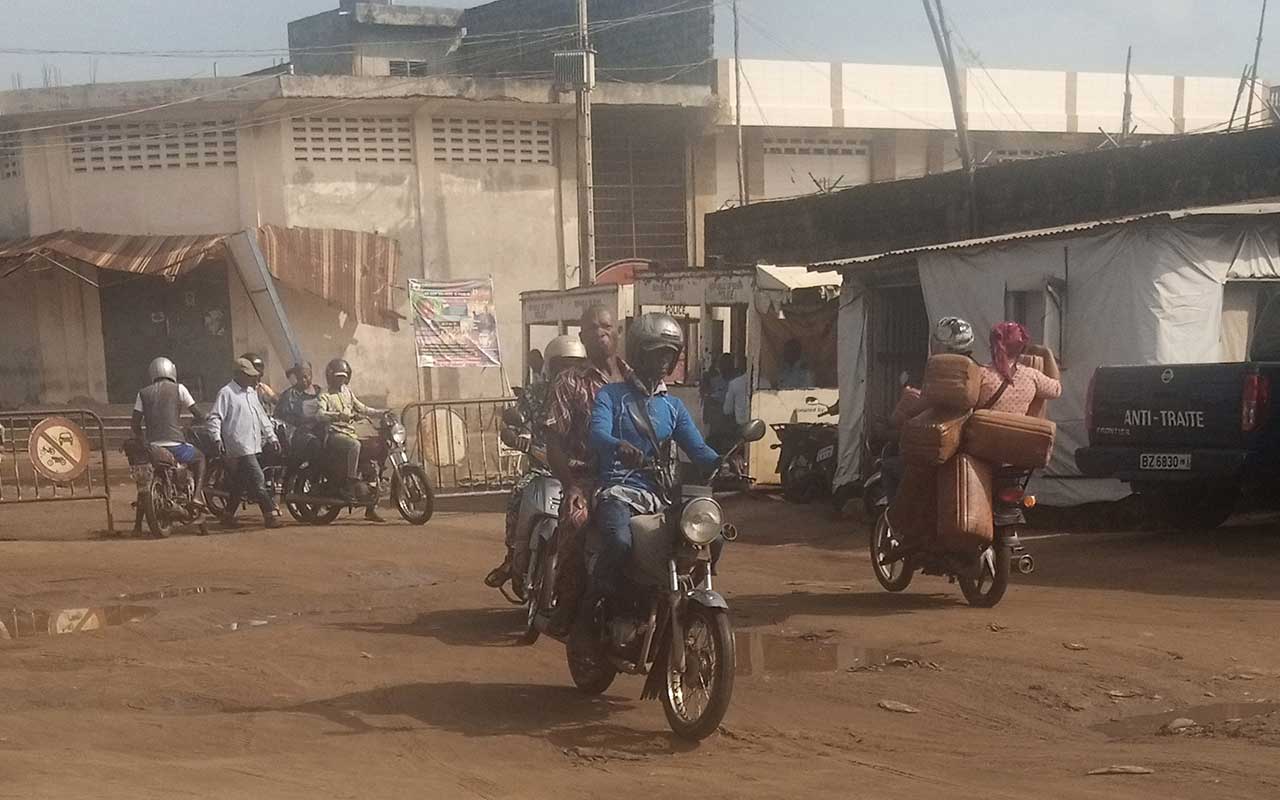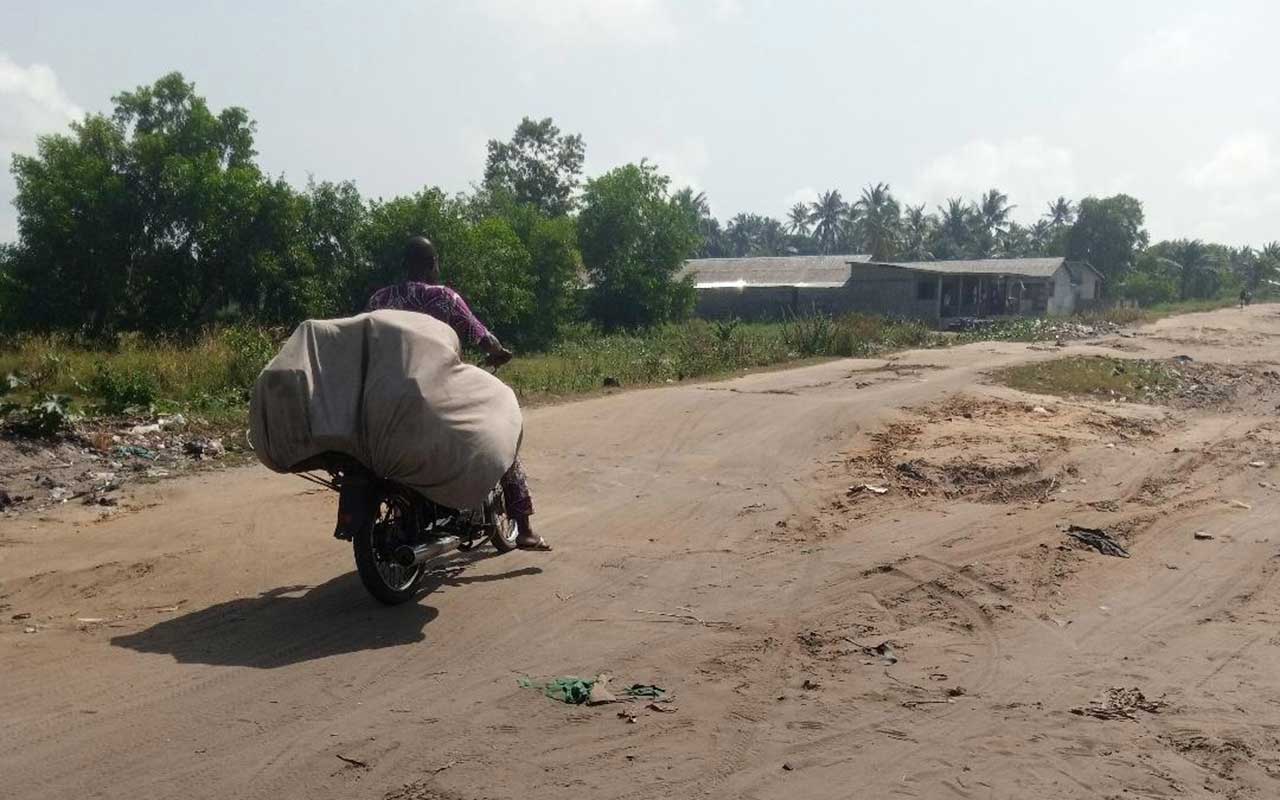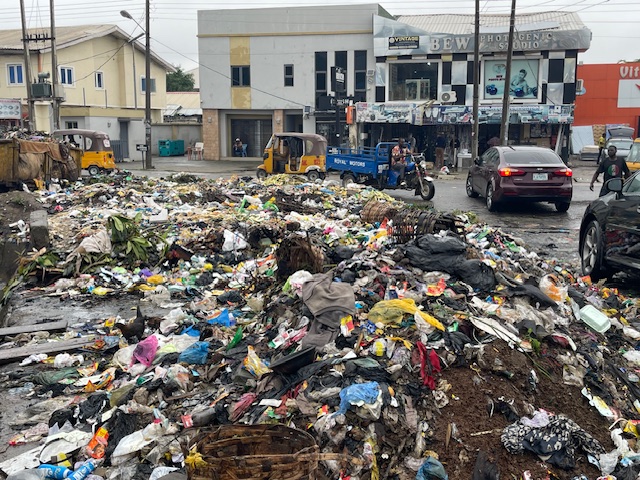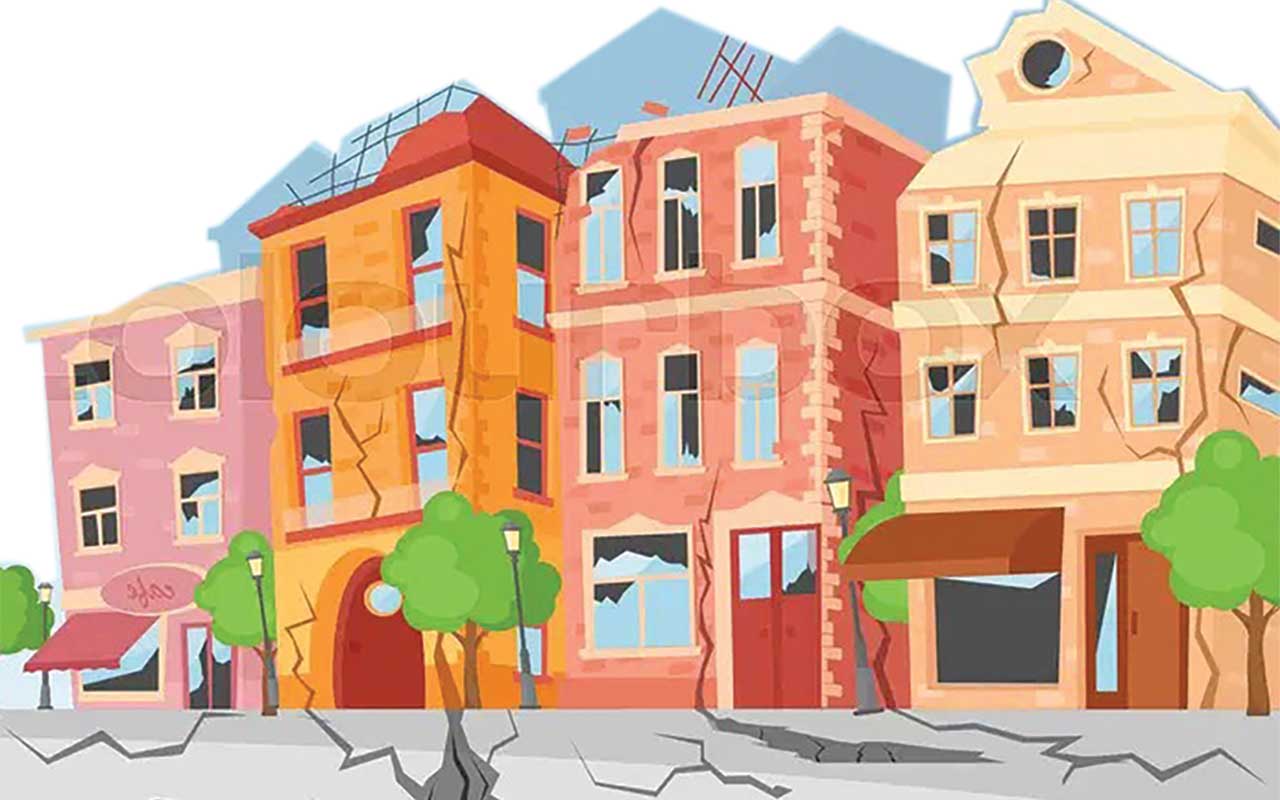 Despite the persistent hike in the price of petrol in Nigeria, the product is still being smuggled into neighbouring countries, especially Benin Republic, because the depreciation of the naira in relation to the Communauté Financière Africaine (CFA) franc seems to have erased the increase in the cost of the product locally, Assistant News Editor, GBENGA SALAU reports.
Despite the persistent hike in the price of petrol in Nigeria, the product is still being smuggled into neighbouring countries, especially Benin Republic, because the depreciation of the naira in relation to the Communauté Financière Africaine (CFA) franc seems to have erased the increase in the cost of the product locally, Assistant News Editor, GBENGA SALAU reports.
• Eight Months After, Black Market Price Remains The Same
• Naira-CFA Depreciates By 64%
Within the last eight months, Nigerians have grappled with hike in the price of petrol, at least three times, but within the same period in Benin Republic into which a large volume of Nigeria’s petrol is smuggled, the black market price has remained the same due to the depreciation of the naira in relation to the CFA, The Guardian findings have revealed.
The value of the naira to CFA in the last eight months has crashed by 64 per cent. In December 2023, when The Guardian visited Benin Republic, while the official price for a litre of petrol was 800CFA, the black market price of the product was between 550CFA and 650CFA, depending on the location. The farther one travels in Benin Republic, the higher the price of a litre of petrol.
The 550CFA to 800CFA when converted into naira in December 2023 was between N1000 and N1400. Then, N1000 was exchanged for 550CFA at the open market but now, N1000 is exchanged for 350CFA.
As a result, Nigeria petrol has become a lot cheaper which makes it enticing for smugglers to still be moving the product into Benin Republic, using all forms of means to convey it. The pump price has increased by at least 66 per cent within the same period in Nigeria.
With people still conveying the product in gallons on motorcycles, packaging them in nylon and sacks, moving it in enlarged fuel tanks of cars and buses or loaded cars with tinted glass, the business of smuggling petrol from Nigeria to Benin Republic is still thriving.
When The Guardian visited Benin Republic last Saturday, a litre of fuel was still being sold in the black market for between 550CFA and 650CFA, depending on the location.
Despite the fact that a litre of petrol has moved from N600 to N950/N1000 in Nigeria, it has not discouraged smuggling to Benin Republic. The irony is that while Nigerians are paying more for petrol in terms of the naira value, residents of Benin Republic are not paying more for Nigeria’s petrol smuggled into their country because of the depreciation of the naira to CFA. During the last visit, N1000 was exchanged for around 350CFA which wiped out the increment on petrol price smuggled from Nigeria, as Beninoise and other residents now have more purchasing power with the CFA against the naira.
In December 2023, petrol stations around Badagry in Lagos State were dispensing fuel to mostly women, inside all forms of containers and cellophane bags that they use in bagging and repackaging the product for onward movement to Seme border and finally into Benin Republic.
Disused water bottles of different sizes, gallons of varied shapes and bulks were also used to buy and ferry the product. Some of the smugglers, after buying the petrol in bottles or nylon, would later stock them in sacks also of different shapes as well as bags of various sizes. It was learnt that those who packaged the petrol in small bottles and nylon did that so as not to be caught by officials of the Nigeria Customs and other security agencies, to reduce the bribe that would be paid to the security personnel.
Some of the smugglers, who were more daring and allegedly have agreement with security personnel, it was gathered, were those who moved the product in 50-litre kegs. They transport them with motorcycles and cars from Badagry to Seme enroute Benin Republic. Some of the more daring smugglers moved petrol in jerry-cans through boats.
 Investigation revealed that many of these smugglers, especially those who moved the product in big jerry-cans and had agreement with personnel of security agencies that overlooked their activities, paid the officers based on the number of times they move the product across the checkpoints. However, there were those who operate on the pay-as-you-go basis in the smuggling of petrol across the checkpoints. They are the ‘small’ smugglers who moved their petrol in bottles, small sacks, bags and nylons. There were also smugglers, including commercial bus drivers, who transported the product across the border or to Seme by expanding the size of their vehicles’ fuel tanks. Some of them built extra fuel tanks within their vehicles. Many of those who smuggled petrol in nylon, bags and bottles sourced the product mainly in Badagry, especially Badagry Roundabout. Most of the filling stations seemed readily available to serve majorly smugglers who were ready to buy at above the normal pump price.
Investigation revealed that many of these smugglers, especially those who moved the product in big jerry-cans and had agreement with personnel of security agencies that overlooked their activities, paid the officers based on the number of times they move the product across the checkpoints. However, there were those who operate on the pay-as-you-go basis in the smuggling of petrol across the checkpoints. They are the ‘small’ smugglers who moved their petrol in bottles, small sacks, bags and nylons. There were also smugglers, including commercial bus drivers, who transported the product across the border or to Seme by expanding the size of their vehicles’ fuel tanks. Some of them built extra fuel tanks within their vehicles. Many of those who smuggled petrol in nylon, bags and bottles sourced the product mainly in Badagry, especially Badagry Roundabout. Most of the filling stations seemed readily available to serve majorly smugglers who were ready to buy at above the normal pump price.
But now, there has been a slight change in the operations of the small scale smugglers from what it was eight months ago. Although the women are still seen lurking around filling stations, the product is not being sold to them bracingly as it used to be around December 2023. The selling is now done at night. Those who cannot wait till then move to filling stations in Ojo and Amuwo-Odofin local councils to source the petrol to be smuggled into Benin Republic.
It is worrisome that despite the multiplicity of security checkpoints in the Badagry-Seme corridor, especially from the Badagry Roundabout, many smugglers are still finding it easy to move the product across the checkpoints and borders. This is aside those who smuggle petrol through the waterways. What many of the smugglers are often apprehensive about is what to pay so that it does not erode the profit to be made at the end of their ‘business’ and not about whether the product would be seized by the security agencies along the corridor.
At each of the checkpoints manned by the Police, Customs, and soldiers, as well as other security agencies, if the officers are not collecting the bribe from the smugglers directly, they have anointed civilians who do so for them. These civilians, sometimes man the checkpoints on behalf of the security personnel who would be relaxing around the checkpoint, monitoring what is going on. It was observed that in most instances when the security officers or their proxies check a vehicle, it was to ascertain the volume of petrol being conveyed to determine what should be charged the smuggler.
It was also noticed that commercial drivers demand high fare from passengers carrying petrol above five litres. In such a case, the driver is expected to pay the security personnel across the checkpoints for the petrol being smuggled. In some instances, the commercial vehicle driver did not charge extra fare it is the smuggler that is expected to pay the security officers.
There are some drivers who reject any passenger carrying petrol. One of such drivers, Tajudeen Ojo, disclosed that he rejected carrying any passenger with petrol because it delayed his movement as some security officers do reject what is offered which often lead to negotiation and time is wasted.
“So, to avoid wasting time at many of the checkpoints, it is better to just not convey any passenger with petrol. A journey that should not take more than 20 minutes can take more than 40 minutes just because of the several stopover and time wasting at the check points,” the driver said.






